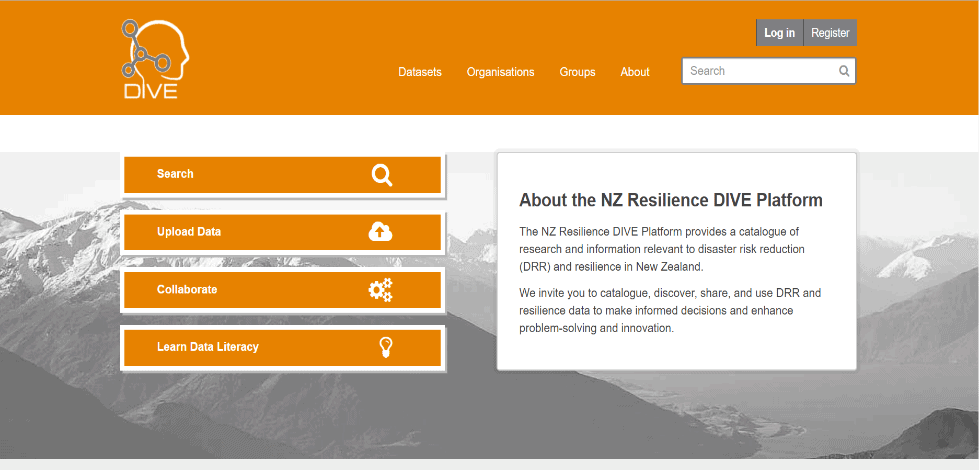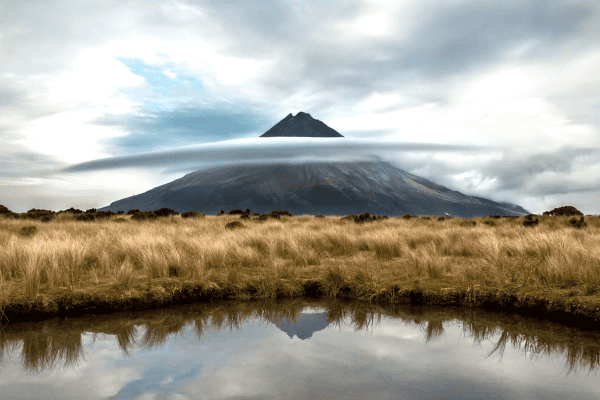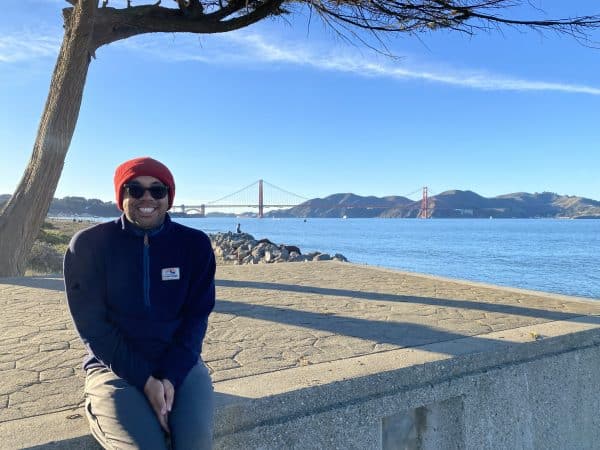Awkward first data: Giving the DIVE Platform a second chance
11/12/2018
By Dr Joanne Stevenson
Despite many calls for the creation of a metadata catalogue and repository for disaster risk reduction and resilience data, engagement with the first prototype of the New Zealand Resilience Data Integration and Visualisation EnMasse (DIVE) Platform has been poor. The developers of the trial platform have recently received additional funding to increase engagement with DIVE and explore ways to deliver on the site’s promise to provide a place to make resilience data more visible.

The Resilience Challenge Trajectories Toolbox team has now launched the New Zealand Resilience Data Integration and Visualisation EnMasse (DIVE) Platform, and it is ready to start receiving data and information from researchers and stakeholders engaged in resilience and disaster risk reduction work across the country. The DIVE Platform provides a catalogue of research and information relevant to disaster risk reduction (DRR) and resilience in New Zealand. Anyone can view and login to the DIVE Platform web interface at: resiliencedata.org.nz.
This launched prototype exceeds the team’s initial expectations for what the “resilience digital information system” project under the Trajectories Toolbox workstream was meant to achieve. The concept for the DIVE Platform was drawn from wide-ranging consultation with researchers and potential stakeholders of DRR and resilience research. The team were always aware that it was going to be a hard sell to get busy researchers excited to enter metadata and share their resources for the greater good of the resilience researcher and practitioner community. The Trajectories team continues to explore avenues to incentivise and simplify engagement with the platform.
The Trajectories Toolbox recently secured additional funding from a Resilience Challenge contestable funding round to support the ongoing development of the platform, encourage engagement, and allow systematic evaluation of the engagement and development of the system. We have welcomed Becca Fraser, a master’s student at the University of Canterbury, to the team as a research assistant to help with this portion of the project.
Part of Becca’s role is to encourage and assist researchers across QuakeCoRE and Resilience to Nature’s Challenges, as well as any additional stakeholders, to input metadata, host unique datasets for others to see and use, and feature their initiatives on the DIVE platform.
There is an increasing flow of information from governmental sources, organisations, researchers, and the public. This information can help us answer some of society’s most pressing questions, but we need to be able to find, understand, and apply it in meaningful ways. Processes such as recording and sharing high quality metadata can increase the interoperability and reusability of the information being collected and shared. The DIVE Platform was created by the Resilience Challenge’s Trajectories Toolbox, but it needs to be ‘owned’ and maintained by New Zealand’s research community going forward. This additional funding will buy some time to map a path to a system that can deliver the data visibility and cross-pollination desired by people across the research and practitioner community.



